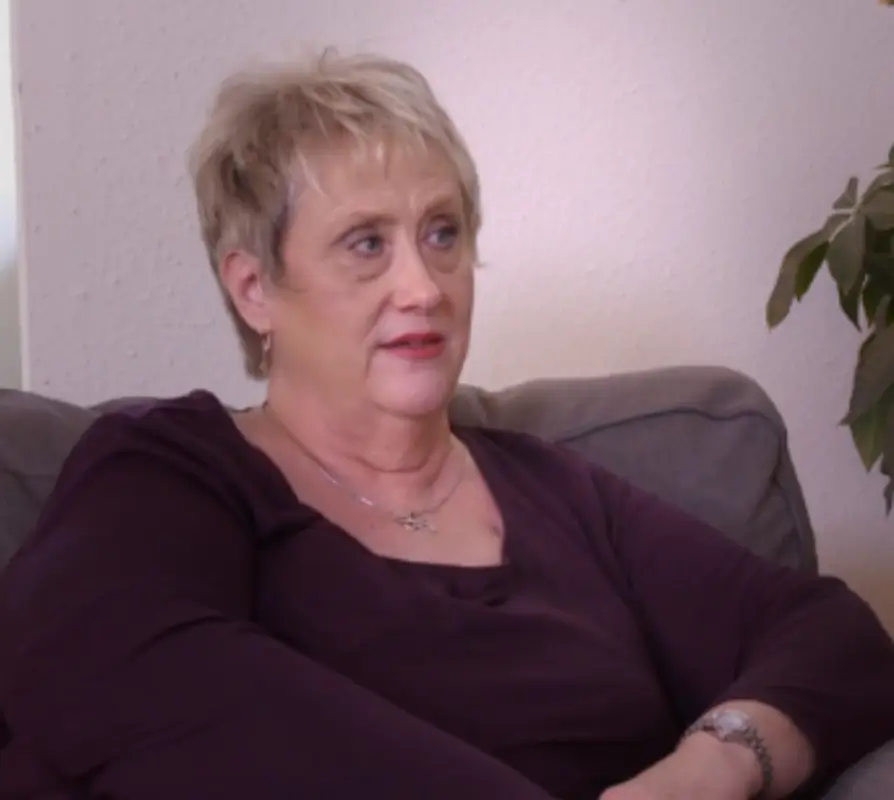Navigating Long-Term Care with Professional Staff
Navigating Long-Term Care with Professional Staff
In partnership with

Caregiver Action Network’ s Guide to Long-Term Care helps family caregivers navigate some of the challenges about long-term care head-on. This guide includes:
- Navigating the Changes in Your Role as a Caregiver
- Addressing Caregiver Guilt
- Tips for Interacting with the Long-Term Care Community Staff
- Tips for Recognizing Agitation
- Resources for Family Caregivers
“Having that feeling that you cannot leave him alone, that you cannot leave the house. It was taking our lives away…”
– Dalel, California – Caregiver for her husband

Navigating the Changes in Your Role as a Caregiver
- Build relationships with the staff at your loved one’s long-term care community
The staff at the long-term care community wants the same thing you and all the members of the care team want: your loved one to be as healthy and happy as possible. Building a relationship with the staff working directly with your loved one – nurses, aides, etc. – will make this transition easier for both you and your loved one. A few ways to do that includes:- Keep community staff informed of any changes to your loved one’s condition(s) or any ongoing therapies/treatments.
- Provide any updates to appropriate staff following any medical appointments, specifically if your loved one is in an assisted living.
- Provide staff with helpful information about your loved one, such as:
- Specifics around when and how your loved one prefers to take their medications.
- Tips to help deescalate any outbursts or challenging behaviors.
- Tips on how to best communicate with your loved one.
- Stay Connected
- Identify who on staff you need to contact with any questions. Make sure that you’re directing the appropriate questions to those who can properly answer your question.
- The nurse that works with my wife through most of the week is wonderful. She introduced herself straight away when we were moving her in, and before I left, she gave me the number to the nurse’s station so I could call if I wanted to know how she was doing or if there was anything I should bring with me when I came to visit.
- Ask for Help
- Transitioning your loved one to a long-term care community isn’t easy, regardless of how prepared you may be. Seek out support from family and friends, support groups, and/or a therapist so you can talk through these difficult feelings.
- My mom and I both knew that moving Dad to a nursing home was for the best. It was just too much for her take on – caring for him, taking care of the house, and taking care of herself. I wasn’t prepared for how hard that decision would ultimately be and how I would feel like I was letting both of them down. Mom felt the same way – like she had failed Dad. I brought these feelings up to a social worker at the hospital right before Dad was discharged and she gave me the number of a therapist that has experience helping people in similar situations. Mom and I have been going to weekly sessions for about three months and feel so much better having someone outside the family to talk to.
- Transitioning your loved one to a long-term care community isn’t easy, regardless of how prepared you may be. Seek out support from family and friends, support groups, and/or a therapist so you can talk through these difficult feelings.
- Navigating COVID-19
- Being a family caregiver during a public health crisis like COVID-19 presents many challenges – especially if your loved one resides in a long-term care community. Almost all long-term care communities have closed their doors to visitors to minimize exposure and keep residents safe. But what does that mean for you?
- Figuring out a new way to stay in touch with your loved one, by using digital solutions like video chat, calling more frequently, or writing letters. It’s important to figure out what works best for your circumstance.
- Coordinating regular updates with staff. In times like these, circumstances develop and change frequently, so it’s important to stay up-to-date. Online portals, such as MyOmniview are a great way to stay up-to-date on updates specific to your loved one’s medications.
- Building and utilizing a support network for yourself consisting of friends, family, and others. The COVID-19 pandemic has had an emotional and mental impact on everyone and you don’t have to go it alone.
- Being a family caregiver during a public health crisis like COVID-19 presents many challenges – especially if your loved one resides in a long-term care community. Almost all long-term care communities have closed their doors to visitors to minimize exposure and keep residents safe. But what does that mean for you?
- Bottom Line:
- My Loved One Recently Transitioned Into a Long-Term Care Community:
- Acknowledge where you are in the process and admit that sometimes you don’t know what you don’t know. You aren’t expected to be an expert in this particular process and by acknowledging this and asking for help, the professional team can direct you to the appropriate processes and channels that will help you organize your questions, information and the ultimate care of your loved one.
- Nobody tells you where to start when you move someone into a long-term care community. My husband was diagnosed with MS five years ago and one of the first things his doctor recommended is that we find a support group. When we moved him 3 months ago, I swallowed my pride and reached out to a woman in the support group whose husband had been in a nursing home for a few years. I felt so much better when she said she had been in the same boat as me. I felt like I wasn’t alone.
- Acknowledge where you are in the process and admit that sometimes you don’t know what you don’t know. You aren’t expected to be an expert in this particular process and by acknowledging this and asking for help, the professional team can direct you to the appropriate processes and channels that will help you organize your questions, information and the ultimate care of your loved one.
- My Loved One Has Been in a Long-Term Care Community for Years:
- Understand that even if your loved one has been in a long-term care community for years, as they age, their condition may advance or worsen, and there will need to be modifications to the approach of their care. This means modifications to your approach as a family caregiver. Use your regularly scheduled check-ins to evaluate changes and adjust accordingly.
- Grandma has had Diabetes for as long as I can remember. She’s never had any issues but we noticed that her blood sugar was becoming a bit more difficult to keep under control. We brought this up to her Endocrinologist during a regular check-up and we discussed some minor diet changes that may help. Grandma was pretty excited to tell the staff about the new snacks she was getting to eat and we worked through a slightly new snack and testing schedule with the staff.
- Understand that even if your loved one has been in a long-term care community for years, as they age, their condition may advance or worsen, and there will need to be modifications to the approach of their care. This means modifications to your approach as a family caregiver. Use your regularly scheduled check-ins to evaluate changes and adjust accordingly.
- My Loved One Recently Transitioned Into a Long-Term Care Community:
“I think my most difficult conversation would be telling my mom why she had to be in the nursing home versus staying home with me, because she knows I have a room for her when she visits, but when she asks me, ‘Well, why can’t I come home with you?’, you know, it breaks my heart, but I have to tell her, Mom, I’ve got to work and I’ve got a husband.”
– Judith, Texas – Caregiver for her mother

Addressing Caregiver Guilt
“If you ever have to make that decision where it’s just too much for you, first you have to come to the serenity that it’s the right thing for you to take care of him in the best way, because there may be a point you can’t lift him, or you can’t turn him to change him as much as he needs to be changed. Whenever that time comes, you have to find a peace enough to be able to do it for him, and then ultimately for you too.”
– Judith, Texas – Caregiver for her mother

Tips for Interacting with the Long-Term Care Community Staff
“That was hard. That was hard in the beginning when I put her in the nursing home. She would say – the first day when I took her – ‘You’re not just gonna drop me off, are you?’ I said, ‘Mother, absolutely not.’ So for two weeks I was there every day. And staff told me, ‘You don’t have to come every day.’ And I said, ‘Oh, yes, I do, I need to know that my mother is secure and comfortable, and is not going to be frightened.”
– Claudia, Texas, Caregiver for her mother

Tips for Recognizing Agitation
Does your loved one have dementia? Agitation is common in individuals living with dementia, but can be difficult to recognize. This section of the guide will help you identify the symptoms of agitation and what the root cause may be, while addressing those challenging associated behaviors.
Resources for Family Caregivers
Online Care Community:
Ask a Question or Offer Support to Other Caregivers



